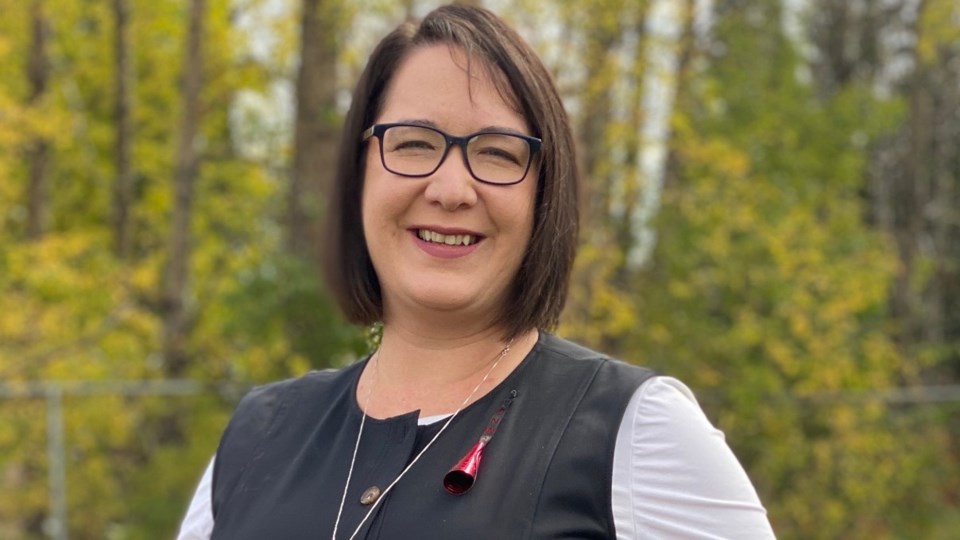The Ontario Native’s Women's Association (ONWA) said they are pleased with the newly released provincial action plan on Missing and Murdered Indigenous Women and Girls (MMIWG), as its framework is based on the voices of Indigenous women.
This is in opposition to the federal National Action Plan, which ONWA representatives feel is not focused on immediate safety needs, nor prevention.
Pathways to Safety: Ontario’s Strategy in Response to the Final Report of the National Inquiry into Missing and Murdered Indigenous Women and Girls, the strategy released by the provincial government, is one that Cora McGuire-Cyrette, executive director of ONWA, has much more faith in.
That’s because she feels that at least the provincial government “listened.”
After the June 3 launch of the National Action Plan for investigation into the issue of Missing and Murdered Indigenous Women and Girls (MMIWG), a media advisory was issued featuring the voices of many women’s organizations that were displeased they had not been included in the development of the action plan, including the Ontario Native Women’s Association, the Quebec Native Women’s Association, the Feminist Alliance for International Action and the Union of B.C. Indian Chiefs.
Each group spoke not only to their frustration with their exclusion from the National Action Plan process, but that the plan itself did not examine the ways in which the issues facing Indigenous women intersect.
“The National Action Plan speaks of systemic racism and colonialism, but forgets to address immediate safety needs, sexism, patriarchy and their intersectional natures,” McGuire-Cyrette of ONWA said in a release. “Indigenous women go missing and are murdered because they are Indigenous and because they are women. We expected a National Action Plan to provide concrete solutions to this violence.”
McGuire-Cyrette later told Sudbury.com, “the report talks a lot about high level goals and aspirations,” she said. “But we’re talking about immediate safety needs, not about ‘feeling’ safe in communities, but actual safety. About prevention.”
To put it bluntly, McGuire-Cyrette noted sadly, “It (the national action plan) feels like it only cares about us when we’re gone.”
“Had we been invited to participate in the process,” she said, “we have so much wisdom that could be shared, we could have advocated for the pieces that are missing.”
ONWA is the oldest and largest Indigenous women’s organization in Canada and is celebrating its 50th anniversary this year. “We were one of the very first movers and shakers of the Indigenous Women’s movement,” said McGuire-Cyrette.
She also says a lack of acknowledgement of those who did not wish to participate in the National Inquiry, or of the grassroots organizations that work directly with the families and women still facing violence, made the path to the federal government's framework “flawed from the beginning.”
McGuire-Cyrette said many families and survivors did not feel comfortable testifying or reliving the trauma. “We recognized that we need to give space and opportunity to those who still wanted their voices heard.”
It is for this reason that McGuire-Cyrette is more hopeful about the provincial action plan.
Not only because of the inclusion of ONWA and the details of their report - which was based on the voices of the 5,700 Indigenous women across Ontario - but the addition of a Indigenous Women’s Advisory Council.
McGuire-Cyrette said that if the first step of healing is reclaiming voice, then it is important to make sure everyone is given a chance to speak.
ONWA listened to those voices, said McGuire-Cyrette. Then the province listened to ONWA, among other service providers. “We said we need to have Indigenous gender-based analysis included in the framework, and they included it in the framework. There wasn’t a separation of Indigenous analysis and gender analysis (as in the National Action Plan).”
It wasn’t perfect, said McGuire-Cyrette, and there is much to learn, but it was a helpful process.
That’s because the advisory council focused on immediate support, prevention, and the support of women as they heal.
The ONWA-generated report was not focused on salvation, as the idea that you are “saving someone” is a colonial idea, says McGuire-Cyrette. She said the ONWA report, Reconciliation with Inidigenous Women, is more about empowering than saving, and she is pleased that the Ontario government applied many of the recommendations found therein.
However, McGuire-Cyrette says this is only the beginning, a starting point.
“Think we need to remember that this is not an end point, this is just the beginning. What is everyone going to do now that we can’t be ignorant to the facts of colonization and how it has affected women and children? With everything that has happened over the last few weeks, we need allies. We need partners, we need community. We need everybody working together.”
